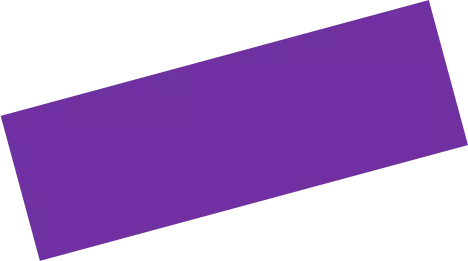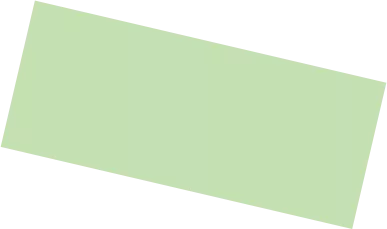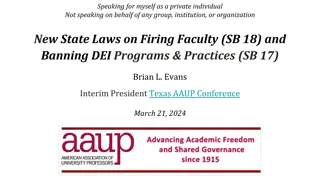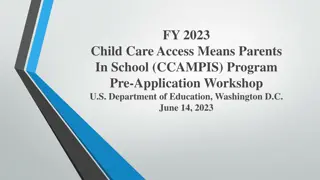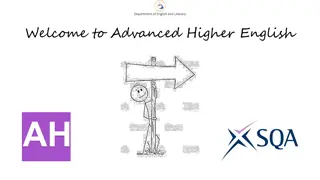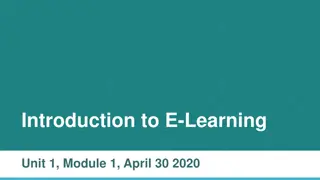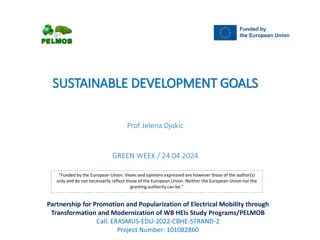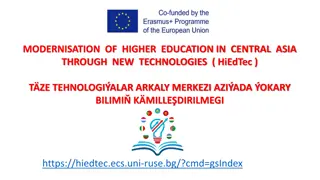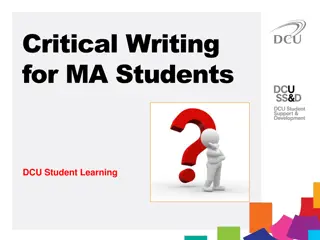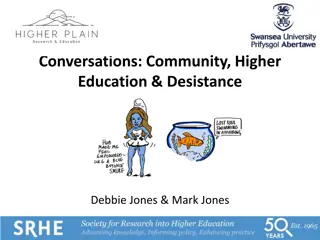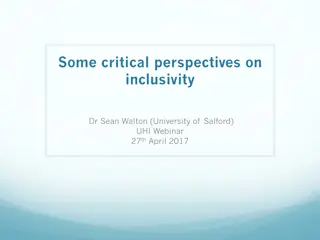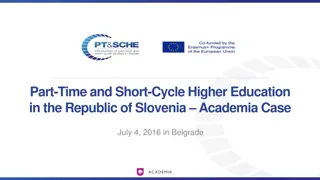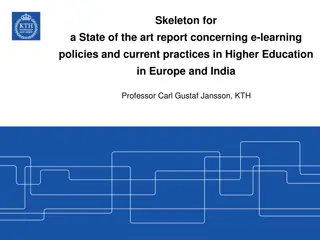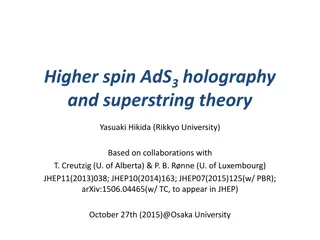Mastering Critical Analysis in Higher Education
Developing a critical approach is crucial for higher education students to enhance knowledge, problem-solving skills, and idea development. This skill involves analyzing sources, evaluating credibility, and identifying key elements. Explore the differences between descriptive and critical analysis, along with essential questions to strengthen critical thinking abilities.
Download Presentation

Please find below an Image/Link to download the presentation.
The content on the website is provided AS IS for your information and personal use only. It may not be sold, licensed, or shared on other websites without obtaining consent from the author. Download presentation by click this link. If you encounter any issues during the download, it is possible that the publisher has removed the file from their server.
E N D
Presentation Transcript
Critical analysis www.kent.ac.uk/student-learning-advisory-service
Why be Critical? Why be Critical? As a student in higher education, you are expected to develop a critical approach to your studies it helps: build your knowledge and understanding improve your idea development and problem-solving skills Becoming skilled in critical analysis takes time, however it is a transferable skill for life
What does it mean to be Critical? What does it mean to be Critical? Analysing and evaluating the credibility of: sources of information evidence ideas and viewpoints (including your own) practices/approaches (including your own) But remember to be critical can also mean identifying positive elements
You may hear your lecturers say You may hear your lecturers say But what is the difference? that you or someone else s work is too descriptive and that it needs to be more critical or analytical
Difference between being descriptive descriptive and critical critical Analysing (critical / analytical) Describing (descriptive) move towards Identifying the significance of what happened Stating what happened Indicating whether or not the methodology is suitable Noting the method used Evaluating the significance of details Listing details Showing the relevance of links between items Stating links between items Stating when something happened Identifying why timing is important Evaluating the options and stating which should be selected Stating options
Questions to ask and answer to help you be more critical critical Describing Questions Analysing move to Whyis what happened important/relevant? What happened Identifying significance What could be improved or should be questioned? Noting method Method suitable? Evaluating significance of details Listing details What do the details tell us? Why should items be linked? Relevance of linking items Linking items Identifying why timing s important What is the historical significance? Stating when Evaluating options and stating which to select What options are the most valid and Why? Stating options
Questioning Sources Questioning Sources What? authors / academics location of research claims made Why? rationale for the argument historical context methodological issues
Moving beyond describing describing to analysing analysing Analysis and criticism = informed judgment or interpretation A critical researcher is always questioning - nothing is taken for granted Each criticism must be supported by evidence
Critical Analysis Critical Analysis You should now find it easier to: Identify the differences between descriptive writing and critical analysis Write in a more critical/analytical style Recognise critical analysis in your sources If you would like to understand more about critical analysis, please book a 1:1 appointment, or contact us at learning@kent.ac.uk
Further resources Further resources For guidance on the broader range of academic skills that will help you succeed at university, please go to the SLAS webpages http://www.kent.ac.uk/student-learning-advisory-service where you can: Book a one-to-one appointment with a SLAS adviser Attend a range of Online Bitesize Skills Development sessions Academic Phrasebank (University of Manchester) http://www.phrasebank.manchester.ac.uk/being-critical/
Get in touch Get in touch SLAS CONNECT To book an appointment: www.kent.ac.uk/student-learning-advisory-service learning@kent.ac.uk SLASkent KentUniSLAS SLASkent








